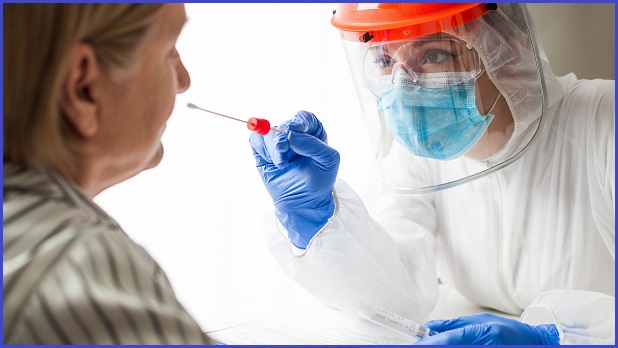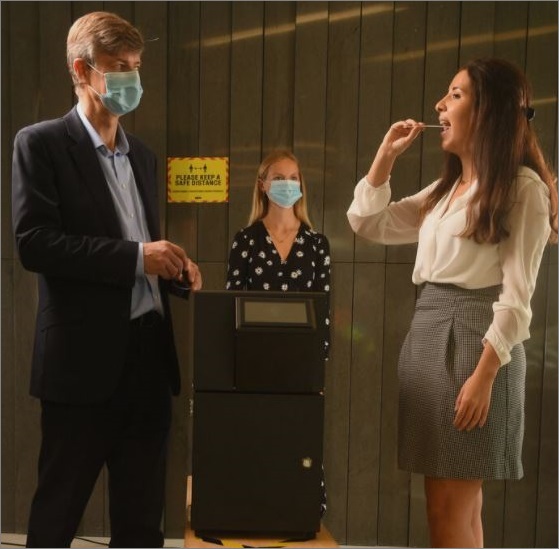An AI-powered COVID-19 test that only takes 20 seconds could be the pathway out of coronavirus lockdowns.
Developed by UK start-up iAbra, the Virolens system uses AI to analyse self-administered saliva swabs and quickly output results.
“This is a significant step forward in the battle against COVID-19, much of which has revolved around our inability to keep society moving with the constant background threat of infection,” said iAbra CEO, Greg Compton.
“Our system allows simple, high speed, reliable and low-cost testing in dynamic environments.”
Virolens has recently completed successful trials at Heathrow Airport and is apparently ready for use around the world.
Gavin Milton-Whilte from KeyOptions – the company which has bought the rights to distribute Virolens in Australia – expects the testing units will help bring life back to normal.
“Imagine you have machines set up at border crossings, airports, transport hubs or even outside the MCG or the Sydney Opera House,” he said.
“People can relax knowing they’re moving into in a COVID-free environment. We can all start enjoying life again.”
AI systems a proven track record in health from picking viable embryos for IVF to accurately identifying breast cancer.
Swinburne University Dean of Health Science, Professor Bruce Thompson, told Information Age the Virolens system was a step in the right direction, but he was reserved with his praise.
“Show me the data,” Professor Thompson said. “They claim the system has a high sensitivity and specificity but there is still going to be some error rate.”
We might soon be swabbing to get into venues and sporting grounds. Source: Virolens
In particular, Professor Thompson was wary of the Virolens testing station relying on self-administered saliva swabs.
“The virus doesn’t just replicate everywhere in the body,” he said. “The reason the current tests swab at the back of your nose and throat is because you need to maximise the chances of finding the virus.
“But this is great and it’s certainly pointing in the right direction. This kind of technology is the path we have to take [out of lockdown], plus or minus a vaccine.”
Professor Thompson expressed a preference toward exhaled breath testing stations, saying there is a high likelihood of finding virus on droplets expelled from lungs.
He has been working with Australian company, GreyScan, to help validate its virus breathalyser – a pivot for the firm which repurposed its explosive detection device to find traces of coronavirus.
Samantha Ollerton, CEO of GreyScan, said breath testing was a unique approach to the big problem of rapid testing.
“Disease testing in breath is commonplace using a breathalyser sample collection system [and] we are developing our method to test the trapped breath on the filters already used in this clinical process,” she told Information Age in an email statement.
“There is also the potential to test people’s hands, belongings, and saliva/nasal excretions.
“However the application of breathtesting – especially using already available tools which are more reproducible and already used by clinicians – would enable the non-intrusive, accurate and fast testing capability not currently available.”
According to GreyScan, the breathalyser will produce positive or negative results from a test within three minutes.











